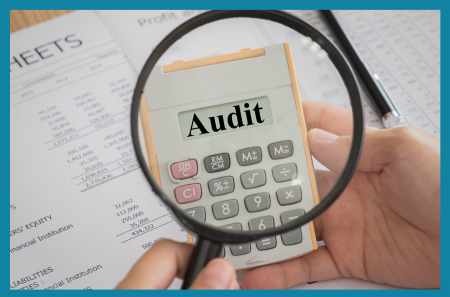What Is the NYS Tax Audit Process

Selection for audit. The DTF selects tax returns for audit based on various criteria, such as discrepancies in reported income and mistakes in taking deductions or credits. You may also fall into a certain statistical category where the DTF has found there tend to be more tax errors or fraud. Note that the DTF uses sophisticated technology tools to help identify returns for audit.
Notification of an audit. Once your return is selected for audit, you will receive an audit notification letter in the mail detailing the issues being examined and the timeframe being questioned and requesting that you produce specific documentation within a designated timeframe. It is important to never ignore a notice from the DTF as you could face collection action and other consequences.
Gathering documentation. You will be required to provide supporting documentation for the items under review. This can include bank statements, receipts, invoices, employment records, and other relevant paperwork.
Initial meeting. Depending on the complexity of the audit, you may have an initial meeting with the auditor to discuss the scope of the audit, the issues being examined, and the documentation needed. In a desk audit, you meet in the auditor’s office. In a field audit, the auditor comes to you (usually, your place of business).
Examination. The auditor will review the submitted documentation to assess the accuracy of your tax return. Additional information may be requested in an Information and Document Request (IDR). Note that a tax attorney can question IDRs that are too broad, vague, or onerous as appropriate and try to keep the scope of the audit limited whenever possible.
Adjustment proposal. After the examination, the auditor will present the audit findings, which may include proposed adjustments to your tax liability. You will have the opportunity to review and discuss these findings with the auditor.
Acceptance or appeal. If you accept the auditor’s findings, you must pay your bill. You may apply for an installment payment agreement if you cannot pay the entire liability at once or try to qualify for an offer in compromise if you cannot afford to pay your bill even in installments. Alternatively, if you dispute the auditor’s findings, you can appeal.
Avenues for appeal. As a first step, you may request an informal courtesy conference where you may be able to present extenuating circumstances or other evidence on your behalf. You also have 90 days to file a request for a Bureau of Conciliation and Mediation Services (BCMS) Conciliation Conference or an Administrative Law Judge (ALJ) hearing. A “conciliation conference” allows you to resolve the audit through a mediator appointed by the State. Decisions can be appealed to the Division of Tax Appeals (DTA) or you may seek court review.
Resolution. If you are successful in challenging the audit findings administratively or in court, the DTF will issue a revised assessment. If you still owe taxes, you will receive a final assessment notice and must make the payment by the specified deadline or your case will go to collections.
The NYS tax audit process can be confusing and complicated. Audit rules and deadlines are stringent. Accordingly, if you are facing an audit, it’s critical to consult an experienced tax lawyer who can advocate for your interests, present a strong case, and negotiate an efficient resolution. Don’t face an audit alone. Contact us for a consultation.


